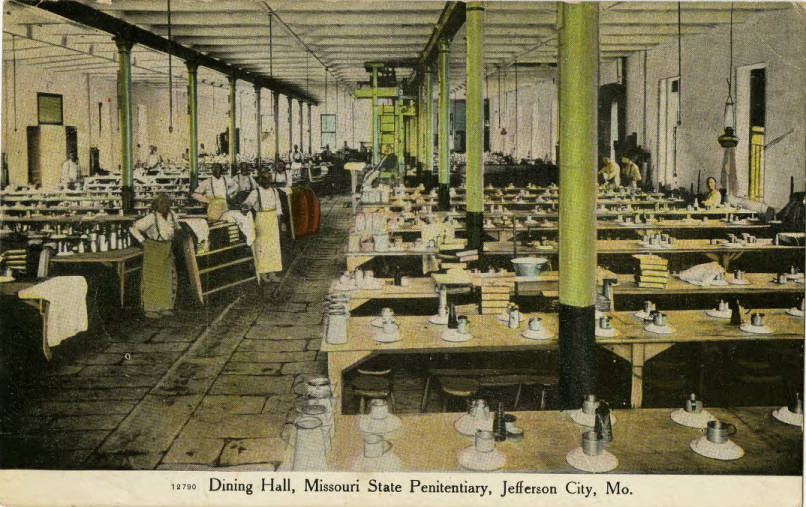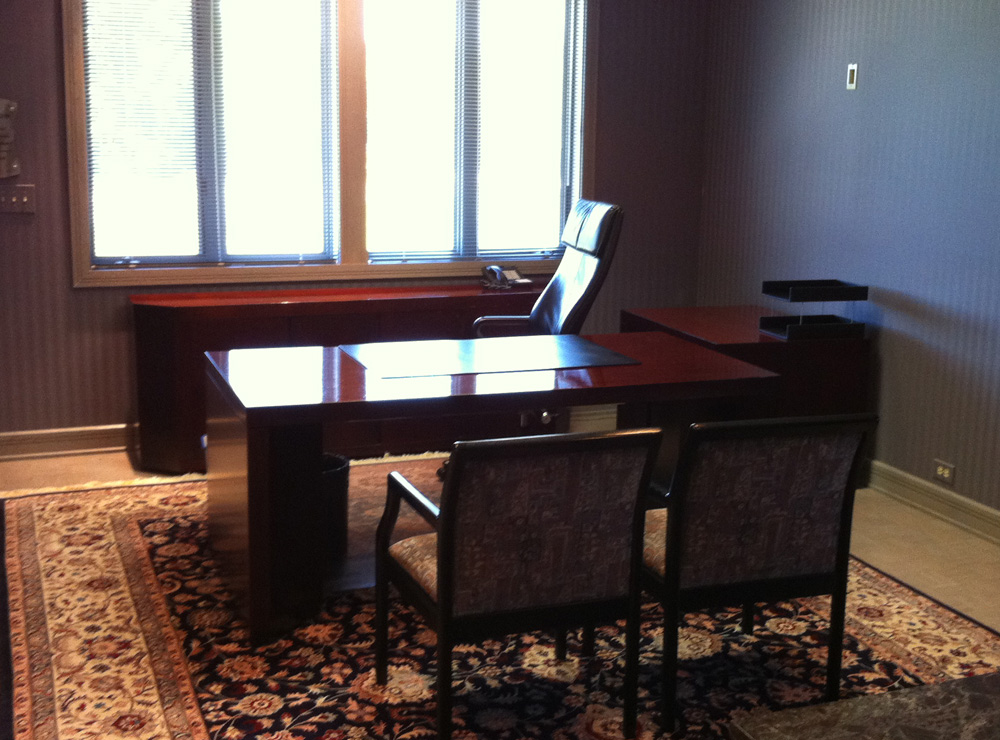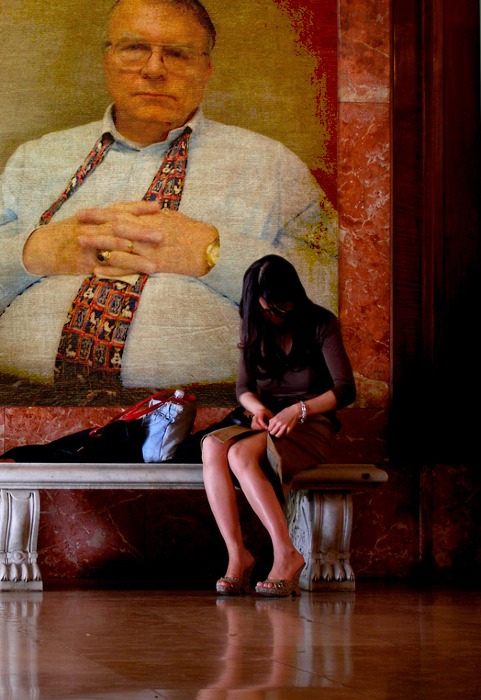In December (2014) Bob Priddy will retire from his job as news director of The Missourinet. The network’s first and only news director. In this interview Bob talks about how the network began; interesting people and big stories; politics and history. I was privileged to work with Bob for almost 30 years and he’s one of the most talented and interesting people I’ve met. The interview runs just under half an hour. Hardly enough time to reflect on his amazing career.
Tag Archives: Bob Priddy
Missouri Capitol
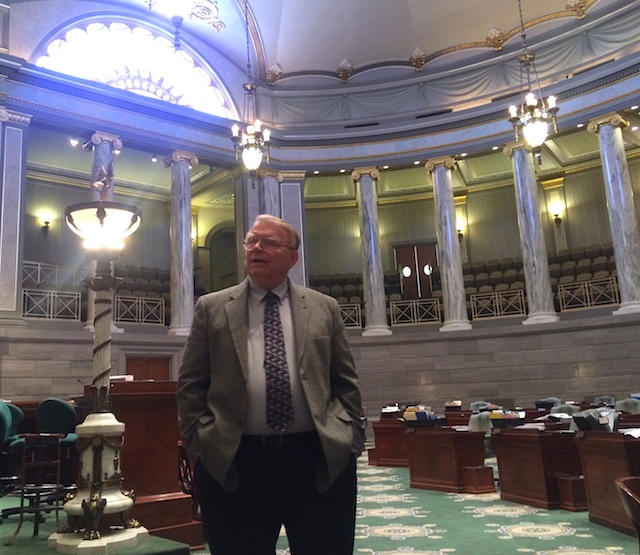
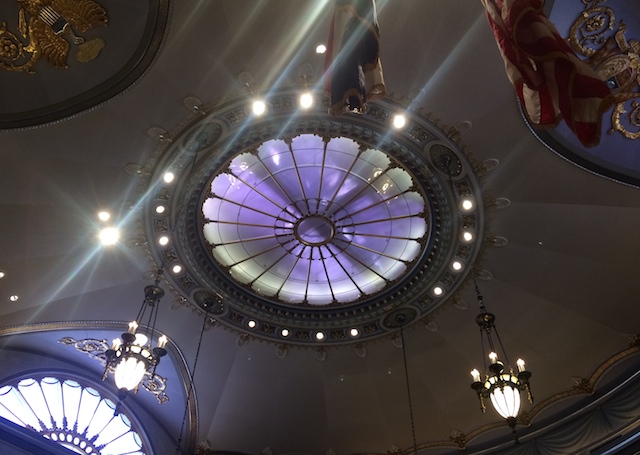



The House that Clyde Built
In the spring of 1984 I had been back at KBOA for about a year. Barb and I had moved to Albuquerque the year before to seek our fortune. She found hers, I did not find mine and we moved back.
I was in the production studio when Clyde Lear called to offer me a job managing his news network. I was still smarting from my Adventure in the Desert and told him I really wasn’t interested. Besides, I really wasn’t a news guy. That was fine with Clyde because he had the best news guy in the state (Bob Priddy). He wanted someone from the programming side.
I took the job and worked for Clyde for the next 25 years. To say he changed my life is — as they say — an understatement. He changed a lot of lives. And built a great company.
On Friday he (along with a handful of minority stockholders) sold the company to a private equity firm.
But for us old hands, the story is “Clyde has left the building,” figuratively if not literally. Our company will continue to grow and prosper, but it won’t be the same company. And that’s okay. Everything changes.
Bob Priddy gets props from national news org
My friend and colleague Bob Priddy received some much deserved recognition at the opening session of the the Radio Television Digital News Assn/National Assn of Broadcasters annual meeting.
Bob, a 27-year member of the RTDNA board, is stepping down this year and they gave him not one, but TWO awards. The John Hogan Award, named for the founder of RTDNA, is given for distinguished service to the organization. The second award, the newly introduced Bob Priddy award, was presented to Priddy and will now be given to board members who exemplify Priddy’s distinguished and consistent service to RTDNA.
Bob is probably the best reporter I’ve ever met. More importantly, he is one of the best people I have ever met.
Bob Priddy
“Taking a break from the news”
The following anecdote won’t mean much to anyone who has never worked at a small town radio station covering local news stories. And I don’t share this to embarrass or disparage anyone still doing so. It’s just a sign of the times.
One of our network reporters called an affiliate in a small town, asking for a feed of a story about a bank robbery and the capture (and tasing) of the stickup guy. Our reporter was informed the station news person was on vacation and since they couldn’t find anyone to do the news in his absence, “they’re taking a break from the news this week.” Our reporter’s reaction?
“The bridge is too far away for me to walk to it and jump. Our bluffs are not high enough to guarantee a fatal descent if I were hurl myself off one of them and I do not want to spend years as a paraplegic watching for more of these signs. My Norelco razor will not cut through any arteries and the only scissors I am allowed to have are the school scissors my children left behind when they grew up.
My only recourse is to continue working in this industry until it reduces me to complete incoherence, upon which time I can be placed in a padded room where I shall be safe from the apocalypse.”
Philosopher and poet-journo Bob Priddy:
“Radio began to lose its soul when stations became “properties,” when communities became “markets,” and when staff became “human resources.”
Learfield’s “kitchen conference room”
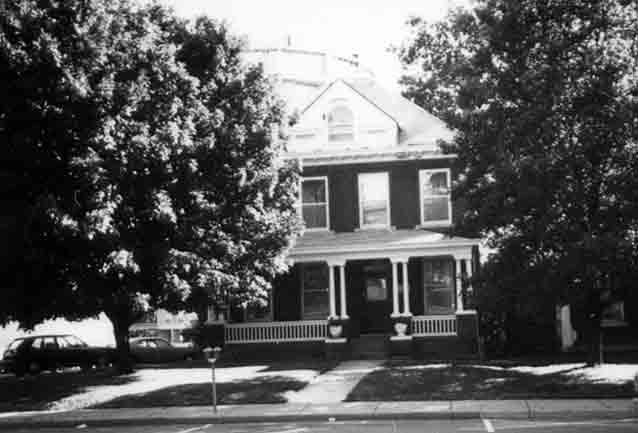
When I started at Learfield Communications in 1984, the business was operated from a 3-story brick house on McCarty Street in Jefferson City, MO. The rooms were jammed with desks and partitions and the kitchen was the “common area.” In this photo (below), you see Clyde, Clarice Brown, Bob Priddy (all still with us) and a few others.
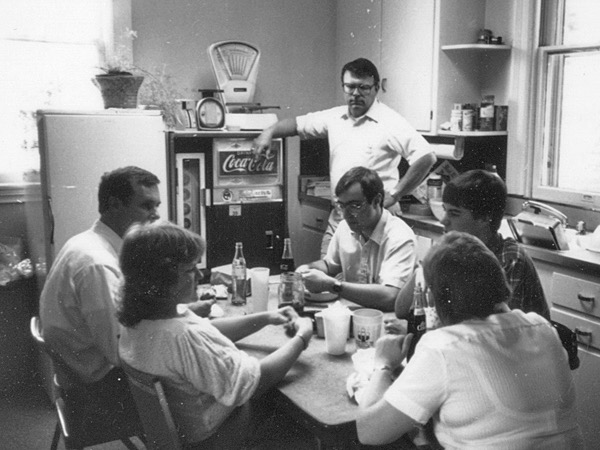
This image captures that time very well. There was very much a family feel to the company. The days of high-tech conference rooms were many years in the future. This is one of several images I scanned from a contact sheet (thus the poor quality). The original prints are undoubtedly buried in a box in some closet.
Twitter coverage of execution
Missourinet (a Learfield network) News Director Bob Priddy covered last night’s execution of Dennis Skillicorn. Reporters and witnesses can’t take cell phones past a certain point, but Bob was planning to use Twitter to file updates before and after the execution (he was a witness).
The wifi he expected wasn’t available so he took notes and posted to @missourinet when he got back on line (at the motel, I assume).
As I expected, Twitter was a very effective tool in the hands of good and experienced reporters. Here’s a screen shot from early this morning.
Had reporters been allowed to keep their Blackberrys and iPhones, this is probably as close to live coverage of an execution as we’re likely to get.
And in the hands of someone as responsible as Bob Priddy, I think this might be a good idea. As I understand it, the rationale behind having witnesses is to insure the people of Missouri “see” this ultimate punishment. Twitter might be the least sensational way to accomplish this on a mass scale.
I’ll make a prediciton here: If not in Missouri, some state will allow or provide this coverage.
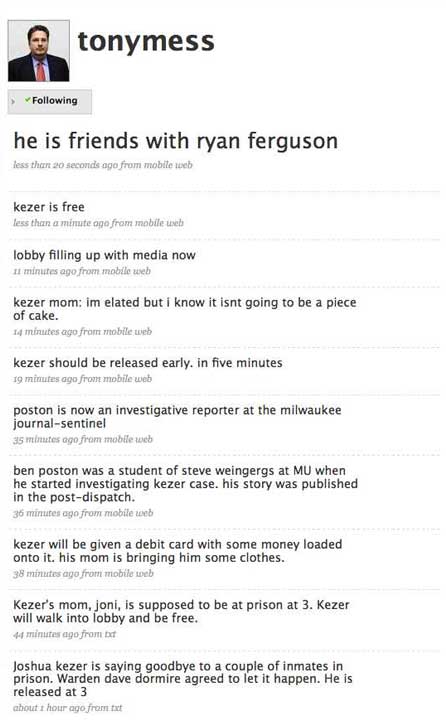
Garrison Keillor on the future of radio
“The future of public radio is shining bright if only we can wrest it out of the hands of people my age and into the hands of people forty years younger. The problem isn’t the medium — the technology is light, portable, easy to use — the problem is the heavy hand of tradition that keeps innovation at bay. There is so much that can be best conveyed through audio, Erin, and that won’t change. The music industry is getting flattened by the Internet, but there’s a great future for radio. I see reality radio as the next big thing — eavesdropping radio, the microphone picking up things you weren’t meant to hear — and then I see radio drama coming back to life, but radio drama that attempts to impersonate reality.
“As far as news goes, radio is the province of the Authoritative Voice, and people are always ready for the next one. We are creatures who love to listen to our own kind. We’re intrigued by the sound of ourselves. When I see people walking around with little wires running into their ears, I have to think radio has a future.”
Missouri prison life in 1800’s
The Twin Hells, by John N. Reynolds, claims to be “A Thrilling Narrative of Life in the Kansas and Missouri Penitentiaries.” I haven’t read the entire account yet but will share this excerpt about the Missouri penitentiary:
“The inmates of the Missouri penitentiary are well clothed. In this respect, this prison has no rival. All the prisoners presented the appearance of being cleanly, so far as their clothing is concerned. All are dressed in stripes. None are exempt. Here are nearly two thousand men on an equality. None of them can look down upon others, and say, I am more nicely dressed than you. I never saw a convict dude in the entire lot. The prisoners are well fed. For breakfast, the bill of fare consists of bread, coffee, without milk or sugar, and hash. There is no change to this bill of fare. If the prisoner has been there for ten years, if not in the hospital, he has feasted upon hash every morning. Boiled meat, corn bread, potatoes and water makes up the dinner, and for supper the convict has bread, molasses and coffee. The principal objection to this diet is its monotony. Whenever a change of diet becomes a strict necessity, the prisoner is permitted to take a few meals in the hospital dining-room. Here he receives a first-class meal. This is a capital idea. A great deal of sickness is prevented by thus permitting the convict to have an occasional change of diet. On holidays, such as Thanksgiving day, Christmas, etc., an extra dinner is given, which is keenly relished by all. I have before me a statement of the expenses for a Sunday breakfast and dinner. There are only two meals given on Sunday. The hash was made up of 612 pounds of beef, 90 pounds of bacon, and 30 bushels of potatoes. Fifty-one pounds of coffee were used, and four and a half barrels of flour. The entire meal cost $68.38.”
It appears the account above is from the late 1800’s. I have not idea of the time period represented by the postcard below (from Bob Priddy’s extensive collection of Missouri postcards)
